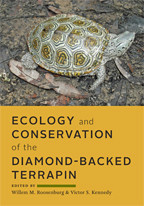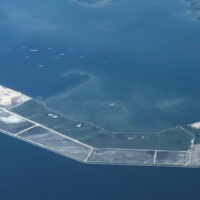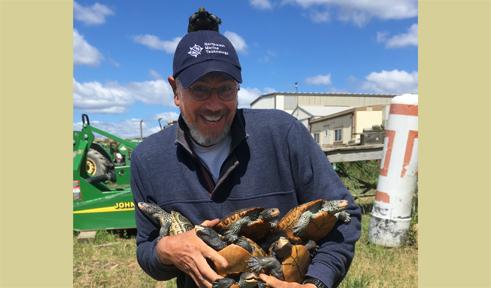World Turtle Day closes out with a presentation on restoration efforts for Maryland’s state reptile, the diamondback terrapin, from the guy who literally wrote the book on the subject, Dr. Willem Roosenburg.
Poplar Island is a one-of-a-kind 1,140-acre restoration project off Tilghman Island in the Chesapeake Bay. Using dredge material from shipping channels, the island, formerly reduced in size to just 5 acres, is being reborn as a wildlife sanctuary. A lack of land predators, undisturbed sandy shorelines, and a variety of habitat types make Poplar an ideal terrapin nesting site.
Since 2002, Dr. Roosenburg, a professor of biological sciences at Ohio University and the director of the Ohio Center for Ecology and Evolutionary Studies, has been monitoring the diamondback terrapin population at Poplar Island, trying to better understand how terrapin populations are affected by the construction of the island and the quality of the habitat that results.
These terrapins are getting a head start, thanks to students across Maryland through the Terrapins in the Classroom project.
Maryland Environmental Service, on behalf of the Maryland Department of Transportation Maryland Port Administration, works with local organizations and schools to place hatchling terrapins in classrooms. The juvenile turtles from the Paul S. Sarbanes Ecosystem Restoration Project at Poplar Island live in classrooms from fall through the following spring.
Students provide all care to the terrapins. They collect growth data, observe behavior, learn care and husbandry protocol, and research the natural history of our state reptile. Head starting allows the hatchlings to grow to the size of a two- or three-year-old wild juvenile terrapin in just nine months.
After caring for the hatchlings, students bring the terrapins back to Poplar Island where they are released to the Bay. Before the head start terrapins are released back on the beaches of Poplar Island, they are implanted with a Passive Integrated Transponder (PIT) tag. If these terrapins are ever recaptured, they can be scanned and identified. Dr. Roosenburg’s study is trying to answer the question of whether having a “head start” really gives these terrapins a higher chance of surviving in the wild.
Payment and Cancellation Policy: Payment is due online at the time of registration. Cancellations made seven or more days in advance of the event will receive a refund minus a 5% processing fee. Cancellations made within seven days of the event will not receive a refund. Events with fees of $10 or less are not refundable unless canceled by NHSM. NHSM retains the right to update or change these requirements at any time.


Location
6908 Belair Road, Baltimore, 21206


